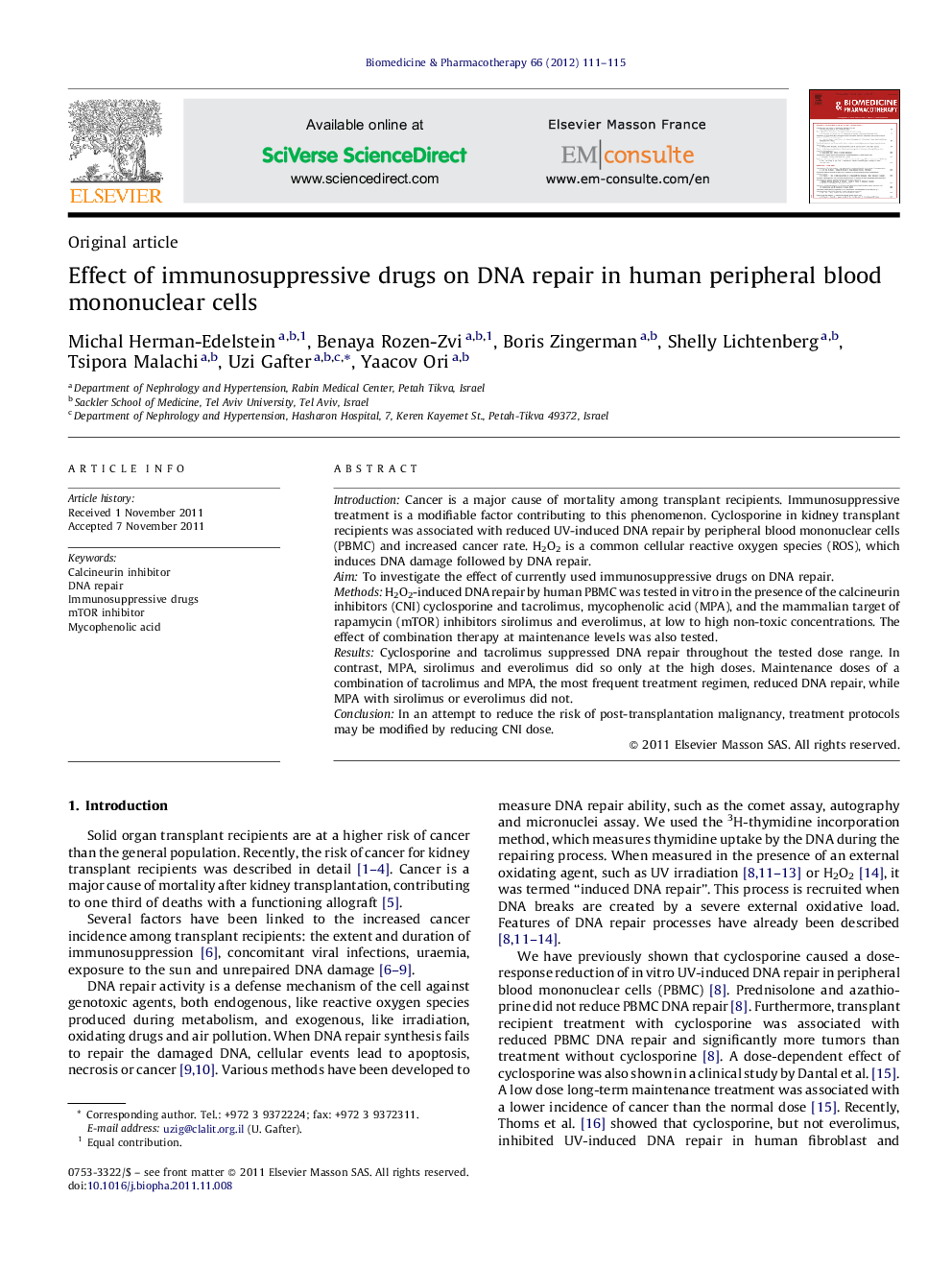| کد مقاله | کد نشریه | سال انتشار | مقاله انگلیسی | نسخه تمام متن |
|---|---|---|---|---|
| 2525181 | 1119600 | 2012 | 5 صفحه PDF | دانلود رایگان |

IntroductionCancer is a major cause of mortality among transplant recipients. Immunosuppressive treatment is a modifiable factor contributing to this phenomenon. Cyclosporine in kidney transplant recipients was associated with reduced UV-induced DNA repair by peripheral blood mononuclear cells (PBMC) and increased cancer rate. H2O2 is a common cellular reactive oxygen species (ROS), which induces DNA damage followed by DNA repair.AimTo investigate the effect of currently used immunosuppressive drugs on DNA repair.MethodsH2O2-induced DNA repair by human PBMC was tested in vitro in the presence of the calcineurin inhibitors (CNI) cyclosporine and tacrolimus, mycophenolic acid (MPA), and the mammalian target of rapamycin (mTOR) inhibitors sirolimus and everolimus, at low to high non-toxic concentrations. The effect of combination therapy at maintenance levels was also tested.ResultsCyclosporine and tacrolimus suppressed DNA repair throughout the tested dose range. In contrast, MPA, sirolimus and everolimus did so only at the high doses. Maintenance doses of a combination of tacrolimus and MPA, the most frequent treatment regimen, reduced DNA repair, while MPA with sirolimus or everolimus did not.ConclusionIn an attempt to reduce the risk of post-transplantation malignancy, treatment protocols may be modified by reducing CNI dose.
Journal: Biomedicine & Pharmacotherapy - Volume 66, Issue 2, March 2012, Pages 111–115